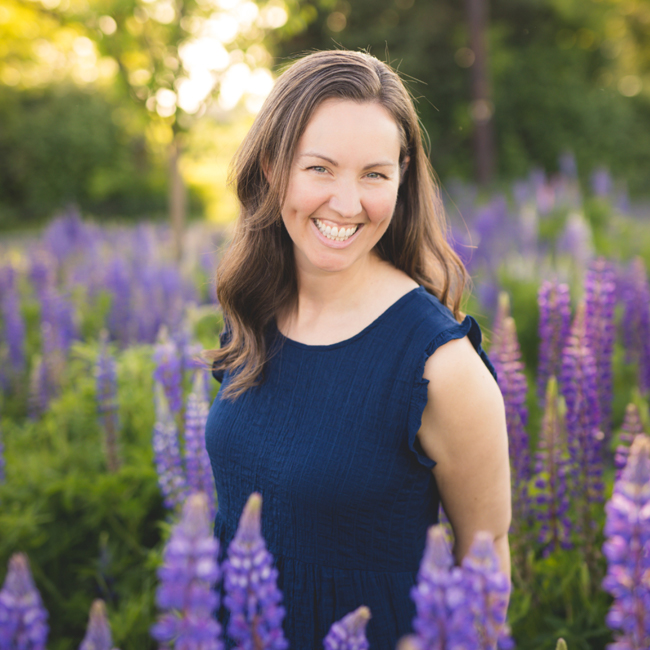There are very few things that I thought “I would never do as a parent” until I was a parent, but, there are a few… Bedsharing is one of them – which is my favourite thing, and I could talk extensively about it, as you know. Another is homeschooling. I don’t know if I thought I would never do it as much as I never really even thought about it to begin with. Once I had kids though, I couldn’t imagine them leaving for that many hours each day and each week, and me not being the one to teach them. Once I moved to Washington State and joined a homeschool coop, I quickly learned and saw all the incredible and vast ways that people homeschool. I saw all the options and opportunities it offers, and I saw families completely thriving. Needless to say, I was hooked!
Now, this is an area where my husband and I continue to communicate, because you see, we both had a great schooling experience, and we even met in high school. On top of that, many of our adult best friends to this day are people we met in school. So, school was a wonderful social outlet for us (I know that’s not the case for everyone). That being said, homeschool isn’t what many people assume, or what it perhaps used to be when the amount of homeschoolers was far less, and the opportunities for coops, meet-ups, and partnerships were minimal. Long story short, we will see if our kids end up going to a public school one day or not – we still have a couple years to figure that out. But for now, I am absolutely loving homeschooling Preschool, and adore learning and experiencing homeschool in all of the different ways it’s done. I am pleased to interview my wonderful friend and homeschool mama,
Katie Doughty, of Team Kind Humans!

Hi Katie! Thanks for adding this interview to all of the other countless things you have going on. Can you start by telling us a little bit about you and your family!
Thanks, Lauren! I’m a former elementary school teacher now homeschooling my two sweet kiddos, ages 7 and 10. I’ve been married to my college (Go Cougs!) sweetheart for 16 years. We are having the best time traveling in our new pop-up camper, exploring the forests near our house, and just doing life together.
I host a podcast called Raising Kind Humans, where I get to interview really cool people like children’s book authors, nonprofits, and experts and dive into the topic of raising our kids to be kind. I run a membership for kids called Team Kind Humans and my mission is to make community service for kids engaging, fun, and impactful. Mostly, I’m just having so much fun learning and growing alongside my kids! [Side note from Lauren: Katie is also an author herself to one of our favourite children’s books to read at home – Pat and the Great Penguin Race – we will talk more about that and her courses at the end, so keep reading!]
You do so much, and with so much enthusiasm! It is beautiful to see. What drew you to go the homeschool route? And in there, I’m sure you’ll share the many benefits.
I had absolutely no intentions of homeschooling! I was a public-school teacher, so I never considered my kids would do anything differently. But then the pandemic happened and everything changed. Alice was in first grade at the time, so when they announced school would be online the following fall it seemed like a better option to just homeschool. I had taught second grade, my favorite, and thought I could handle a year. Well, it turns out we really loved it and haven’t looked back.
It’s actually weird for me to think about my kids being gone all day. I was already feeling the pressure when Alice was in first grade of getting her to school on time, tossing a snack at her on the way to gymnastics, rushing through dinner, trying to get to homework, and then repeating the next day. Homeschooling has given us the gift of time that I never want to let go of. We can pick and choose how much we want to do in a day and decide if we need a day to just chill.
I think for me, the best part about homeschooling is I get to learn alongside my kids. I did well in school, I was great at memorizing, so I did great on tests. But a few days later, I’d forget everything because I didn’t make meaningful connections to the material. Now, when we’re out at a museum or doing an activity together, I’m fascinated by this “new” information. I’m noticing my kids can retain what they learn more effectively because they are making meaningful connections through hands-on, real-life experiences without the expectations of learning something to pass a class. I’m so grateful homeschooling fell in my lap!
You pulled right at my mama heartstrings and spoke many of the reasons I am drawn to homeschool. And, I’m always about being truly informed, so what are some of the negatives or drawbacks of homeschooling?
I think there are pros and cons to everything, homeschooling is not an exception. While thankfully the pros outweigh the cons, there are things about it that can be challenging. Sometimes I joke with my husband that there’s this place called school where you can drop your kids off ALL day every day and we daydream about what that would be like. I’m an entrepreneur, so fitting in time for business and homeschooling can be a challenge. However, it’s also been a blessing to model what it looks like to follow a passion and dedicate time and energy to something you love. To take messy action, be courageous, and try new things. Also, fail!
Another struggle can be making time for friends. Kids who attend a public school have the built-in guarantee they will see kids their age every single day. While the time they are at school is not all social, they still have the opportunity to play at recess and work together on projects. Homeschooling takes a lot more effort. People have different schedules, and it can be a challenge to line up weekly social activities. However, the good news is that homeschooling is becoming wildly more popular and there are so many more opportunities for homeschooled kids post-pandemic than ever before.
You also are in charge of what your kids are learning. So if they don’t know something, it’s on you to figure out a way to teach it. This can be overwhelming, but again, there are so many resources for parents and other families doing the same thing that you’re not alone. It’s completely manageable.
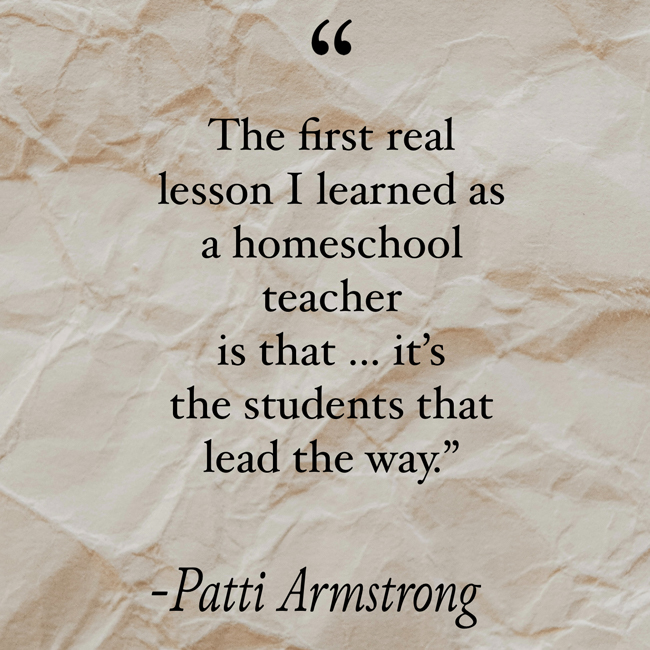
Do you find most people start in homeschool or leave the mainstream education system? If they leave, is it often on good or bad terms?
I think it’s a mix. I know a lot of families that started because of the pandemic like we did, but a lot of friends were in it from the get-go. Pulling kids from the public school system often happens because there aren’t enough resources to help a specific child be successful. Kids who don’t fit the mold tend to stand out and need more assistance. Homeschooling gives parents an opportunity to educate their child the way that specific child needs. Another reason parents might opt out of public school to homeschool is because it offers so much more flexibility. Both in time and learning.
That all makes sense! Okay, now let’s get the most common question out of the way – How do you manage kids not “falling behind,” “being weird,” or being “unsocialized”?
Ah yes, this is the question my husband and I are continually talking about. His biggest concern is the unsocialized aspect. We have made a concerted effort to find groups that give our kids a chance to socialize and make friends. It’s taken some time, but I’m finally feeling like we’ve found our crew, and I can feel my husband’s tension about this topic settle a little more. However, even if they don’t see kids their age every day, they are learning how to navigate the world and hang with kids and adults alike. Talking to the grocery store clerk or asking for help at the library gives my kids the opportunity to socialize in different ways.
As far as falling behind, it’s an obvious fear, but I’m constantly reminding myself that kids learn and grow at different rates. In school, they are bound to a set of standards, so they are measured based on what is grade-level appropriate. Not all kids learn to read at the age of 6. The more pressure you put on checking boxes by a certain date, the harder it will be for kids to be successful. I think the benefit of homeschooling is that there’s room to breathe, to grow, and to follow the interests of your child. You can leave and return to topics as often as you’d like. My whole purpose of homeschooling is to teach my kids HOW to learn, not necessarily what to learn. I want to set them up for success so that if there’s something they want to know more about, they have the tools and the know-how to find what they are looking for.
I’m starting to notice Alice asking to find new curriculum or resources around things she wants to do better in. Spelling is a good example. She just asked me to find a program that will help strengthen her spelling skills. If I handed her a spelling program and required every lesson to be completed she would have met me with resistance, but because it was something she wanted to do better in, she’s been more willing to work on it.
I do find it so interesting how all the homeschoolers I’ve met in Washington have all found different, but wonderful ways to be socialized and interactive, and learn in a vast variety of ways. So, it takes effort, but again, it’s very do-able!! How does one help break this inaccurate depiction of homeschoolers (or end the stigma, so to speak)? Or, how do you speak to someone when they talk/think this way?
I tell people that homeschooling isn’t what it used to be. We aren’t locked in our basement, never seeing other people. We’d go crazy if that were true. I would argue that homeschooled kids are more socialized and better equipped to think outside the box, because they are interacting with people of all ages, not just one specific grade level. They have more time for unstructured play, which is one of the best ways for them to practice empathy, perspective-taking, and problem-solving. Watching my kids dive into play with our Wild + Free group is one of my favorite things, because I know their childhood is short. Play ends too soon for kids and the more we can foster this valuable tool, the better.
They have more choice in what they learn, so they are more likely to be invested in doing well. Requirement vs. choice is a topic I dive into in my upcoming book, Raising Kind Humans. When kids are required to do something, they aren’t as motivated. Their effort may be lacking. Giving kids a choice in their learning makes all the difference.
If kids who were homeschooled were to integrate into mainstream school at a later age, how do you think that would go?
I think kids who are homeschooled can and would be successful in public school. There is a lot of independent learning in homeschooling, which would transfer nicely into the classroom. It would take some getting used to because there is more structured learning, but I don’t think homeschooling would be a hindrance to that.
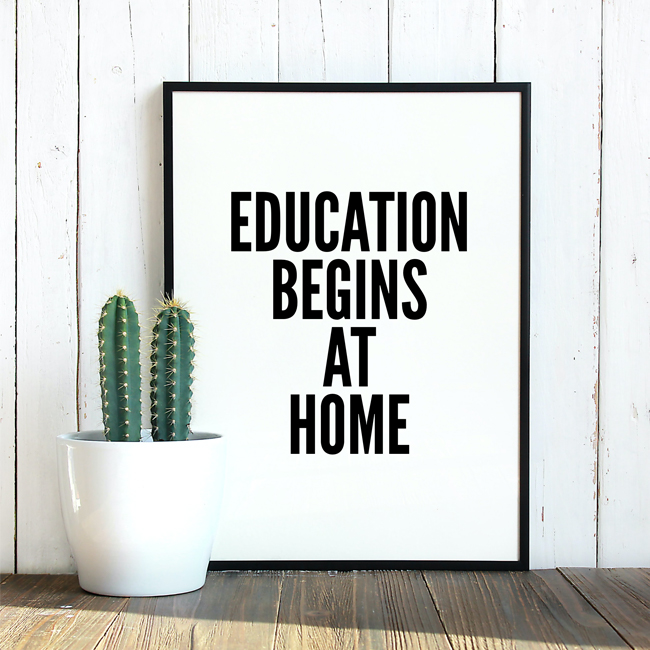
As we carry on, feel free to answer in regards to your own family, and also how you’ve heard of other homeschool families operating. What does a typical day (or week) look like in homeschool?
Our typical day changes each day! On Mondays, we are home together and start our week off with some goal-setting. We often do Poetry Teatime and put some time into our language arts curriculum. We start the math for the week, knock out some spelling and Spanish, and work on projects. On Tuesdays/Thursdays, the kids participate in a partnership program and take classes like cooking, PE, science and art. On Wednesdays, they both participate in an all-day nature program exploring, hiking, writing, meditating, and playing. And Fridays are for field trips! The best part about homeschooling is that you can tailor it however you want. If your kids love taking classes, you can sign them up for that, or you can spend more of your time at home. Families homeschool in so many different ways!
I love hearing everyone’s different rhythms for the week! What does your planning (and learning the curriculum yourself) as a homeschool parent look like, and how much time does it take?
I love planning! But I’ve learned not to put too much time into it because our plan is always changing. Something doesn’t work or the kids aren’t interested, and we shift what we are doing. A lot of the curriculum offers a ton of flexibility, so we pick what is working and toss what isn’t. I try to also find ways for learning to be self-led instead of “teacher” directed. My kids do better when I’m the facilitator rather than the teacher. Keep in mind that my kids are elementary-aged, so I can still handle the curriculum. I’m hoping, however, to help them become self-directed learners to tackle learning in middle and high school when they pass my abilities! If I don’t know how to do something, I model where to find the answers. Again, I’m learning alongside them!
We are life-long learners! How many hours a day are set aside for homeschooling? And do you have specific start and end times, plus specific calendar days? I understand this question is a little hard, because as I’ve learned, all of what you’re doing together is school. When you’re baking, or doing laundry, or running errands, it is all school, and it includes so much more than the skill itself (which, of course, is huge), but it also incorporates reading, and math, and history, and more. But, maybe you can be the one to talk about this…!
When I first started homeschooling during the pandemic, I replicated the classroom. I had been a teacher and it’s what I knew. We had very rigid start and stop times and a laundry list of checkboxes to cover. Assignments were directed by me, and we stuck with them. There wasn’t a lot of wiggle room. I’ve learned over the last three years, however, that that isn’t how my kids thrive. The more I directed, the less effort, enthusiasm, and willingness I saw from them. I had to learn to let go, and that was really hard! But now I’ve seen the benefits of letting learning happen more naturally, giving more choice in what they want to learn, and allowing multiple ways of learning something. I’ve realized that it’s not that kids don’t want to learn, it’s that they want to be invested in what interests them. As soon as there is a spark of interest in something, we follow that rabbit hole.
We also set goals for the week around some of the main subjects and then they are free to complete them on their own time. If they want to knock out their math goals on a Monday or space it out over the course of the week, that’s up to them.
And yes, we like to call our homeschooling “life schooling,” because a trip to the grocery store counts. A trip to the library counts. Heading out to the park and going for a nature walk counts. One of my favorite kids’ books is School is Wherever I Am by Ellie Peterson. School is everywhere and it makes me giddy when we get to connect our real life with natural learning. We do this through travel, conversations, everyday chores, field trips, and more. And it’s meaningful because it’s happening to them right now.
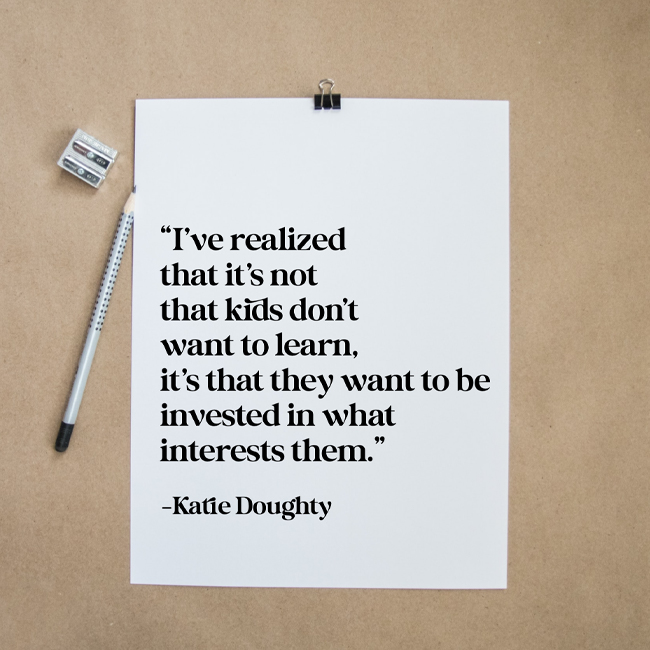
Beautifully said! Which curriculum do you use? Where do you get your ideas from? Please feel free to also suggest where people can start when looking for curriculums. [Maybe you could talk about the wonderful Partnerships for homeschoolers – this is something I didn’t realize until I got involved with other homeschoolers, and the phenomenal options there are at theatres, farms, museums, and more for homeschool “field trips.”]
I’m a curriculum junkie. I love researching all that’s out there and the different ways my kids can learn. However, I’m quick to change it up and find something that works better if I feel like what I’ve chosen isn’t a good fit. Currently, we are in love with Brave Writer by Julie Bogart. We love reading the book recommendations and learning through quality literature. We light candles, pour some tea, and dive in. What better way to learn how to be a great writer than to read great literature? I’ve given up on the short comprehension passages, because there’s nothing for kids to connect to. Quality literature is everything.
We also have settled in nicely with Beast Academy for Math. I’ve tried several programs and this one has captured both kids’ attention and can be self-directed, which I love. It’s comic book-based, so kids read the story and then do the corresponding activities. I’m there to answer questions and help find the answers, but I’m not the main teacher. My kids are reading to learn.
I also use the resources available in our area and take advantage of the classes for homeschoolers. You can go on tours, visit museums, help out at an animal sanctuary, take a rock-climbing class, and so much more. Most places are more than willing to set up a group activity. We also love our homeschool groups that get together to explore, learn, and play.
There are so many different ways to educate your kids. You can choose an open-and-go curriculum, you can find a class, or you can put your materials together. Teachers Pay Teachers has been helpful to find supporting activities, especially for when we travel.
I’m glad these resources are now linked for me for later – thank you! I’ve never asked you this before – do you follow a certain philosophy – Charlotte Mason, Waldorf, Montessori, Unschool, to name a few? If you would like to discuss those a little bit, or send people in the right direction to research them themselves, that would be great!
I’ve never been able to name our specific homeschooling style. Every homeschool family is as unique as the people in it. Some days we are very Charlotte Mason and others we’re full-on Unschooling. I like the philosophy of Charlotte Mason, because it focuses on children being born a whole person. They are not for us to shape and mold, but rather to guide them on their journey by offering up a plethora of options and opportunities and letting them choose from the feast. She also supports learning through quality literature and the importance of nature study.
You did touch on this, but are there specific areas you focus on or do you let your child take the lead on interest? Or better yet, how do you make both these things happen?
I try to let my kids take the lead as much as possible. I will take what they are interested in and find ways to incorporate it into their learning. For example, Alice is really into Taylor Swift right now. So for her writing project, she’s chosen to do a biography on Taylor Swift. We’re going through the research portion together by reading books about her, learning her music on the piano, and writing down the most interesting things about her life. Once she’s gone through the writing process, Alice will “publish” her biography on Shutterfly. She’ll have a finished product that she’s proud of.
We have learning that’s required like math, reading, and writing, but how they learn it gets to be fun and flexible.
A lovely combo! I know I’ve heard of many parents who work from home and homeschool, but have your heard of any way for people to homeschool who don’t stay at home or work from home?
I think it would be a challenge to homeschool if you had to be away from home all day every day. However, at least in our area, you could coordinate weekly classes to cover the learning and childcare while you’re at work. I could easily fill the week with meaningful, cooperative learning opportunities for my kids if I needed to, they just aren’t all free. It’s easier if you have a flexible schedule.
Would you say homeschooling ends up costing more than sending your child(ren) to school?
The great thing about homeschooling is you get to decide what it looks like. You could spend very little and create an amazing learning experience for your kids. Homeschool partnerships, libraries, and consignment shops have a lot of resources to pull from. Lots of places offer free classes and workshops, too. You could also spend a lot on private classes. So, it just depends on what works best for your family.
Who do you think homeschool is best for? Or not suited for?
Homeschool is best suited for the family that wants to slow down and savor the time they have together. If you love to travel and try new things, you’re going to love the freedom that homeschooling gives. It’s for families who want to give their kids a new way of learning, that’s tailored to their unique needs and abilities. I think homeschooling can be for everyone. Even those who say, “I could never do that.” When I hear that answer I just think that they aren’t familiar with how many amazing resources are available for them and their kids.
Let’s talk about your courses and what you offer for kids and homeschool families!! We are loving your Leaping Letters in our house!
Thank you, I’m so glad! Leaping Letters was born out of the pandemic as a way to give preschoolers something just for them. I took a leap of faith and invited preschoolers to meet me twice a week on Zoom as we played through the alphabet. I recorded videos for kids who couldn’t make it live, so now there’s an entire library of content A-Z that includes movement activities, gymnastics, Play-Doh, letter writing, kindness activities, art projects and so much more. Leaping Letters has such a special place in my heart because it brought so much joy during a dark time. Now I get to keep playing with preschoolers!
Team Kind Humans now offers KindSchooling! KindSchooling is more than just an educational approach. It’s a philosophy that taps into what kids love- like art, baking, nature, and writing- to inspire empathy and kindness through community service. KindSchooling redefines education, blending the joy of learning with the fulfillment of making a positive impact. By focusing on nonprofits and engaging service projects, this philosophy shapes young minds into compassionate and socially responsible individuals. It recognizes that education is more than academic success, creating a holistic learning experience. KindSchooling is a commitment to fostering academic growth and the development of kind-hearted, socially conscious kids who can contribute meaningfully to the world around them. I’m thrilled to offer done-for-you video lessons and engaging activity books that guide you on your KindSchooling journey!
I also have a children’s book called Pat and the Great Penguin Race, where Pat discovers that his difference is what makes him special. There’s also a penguin-themed kindness activity guide that features five community service projects and several other kindness activities.
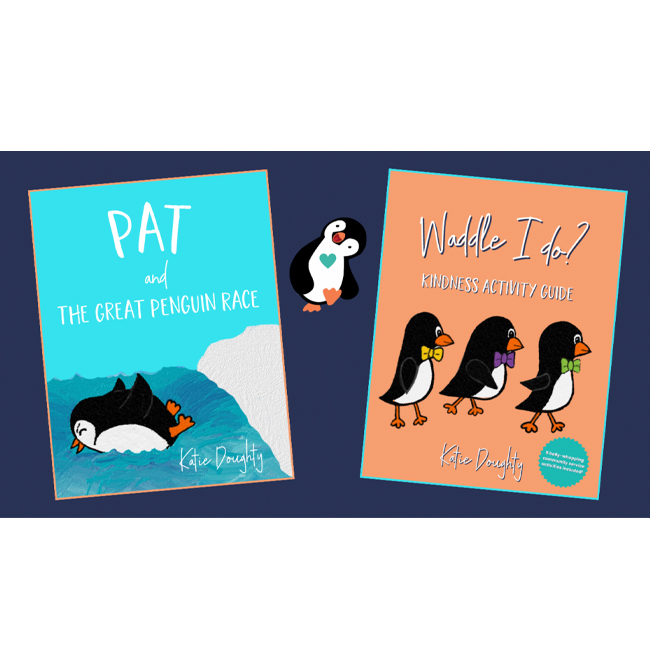
Thank you for all the incredible and KIND work you’re doing!! To talk more about literature, I really enjoyed reading The Call of the Wild and Free, and The Brave Learner. Do you have any top book suggestions on the topic of homeschooling?
Those two are definitely on my top favorites list! Ainsley Arment also has the Wild + Free Family that I loved. I really love A Place to Belong by Amber O’Neal Johnston. She does a beautiful job showcasing how to root your children in their own narrative so that they are free and open to love others, regardless of how they live. Until the Streetlights Come On, by Ginny Yurich, is coming out soon and I can’t wait to get my hands on that book. Her mission is to get kids outside. Julie Bogart also has Raising Critical Thinkers that I return to over and over for ideas and encouragement. Oh! And Modern Miss Mason by Leah Boden! She breaks down the Charlotte Mason philosophy into easy-to-implement strategies.
No shortage of great resources! Is there anything else you’d like to share today?
Just reminding families that there is no “right way” to homeschool. Everyone’s journey looks different and that’s okay. That’s the point! Trust your children, give them space to grow, fail, and learn, and be their biggest cheerleader. Right now I’m just trying to enjoy the journey, give myself grace in the process, and love on my children as much as I can.
Where can people find you to follow along?
Team Kind Humans has all the information about Leaping Letters, the Team Kind Humans KindSchooling, the Raising Kind Humans podcast, and freebies! You can also follow me on Instagram or join the free Team Kind Humans Facebook group. All purchaseable books, like Pat and the Great Penguin Race and Waddle I Do? can be found here.
Thank you for your time!! I apparently could talk homeschool alllllll day long!
Same! Homeschooling is a gift I want everyone to have! Thank you for having me!
